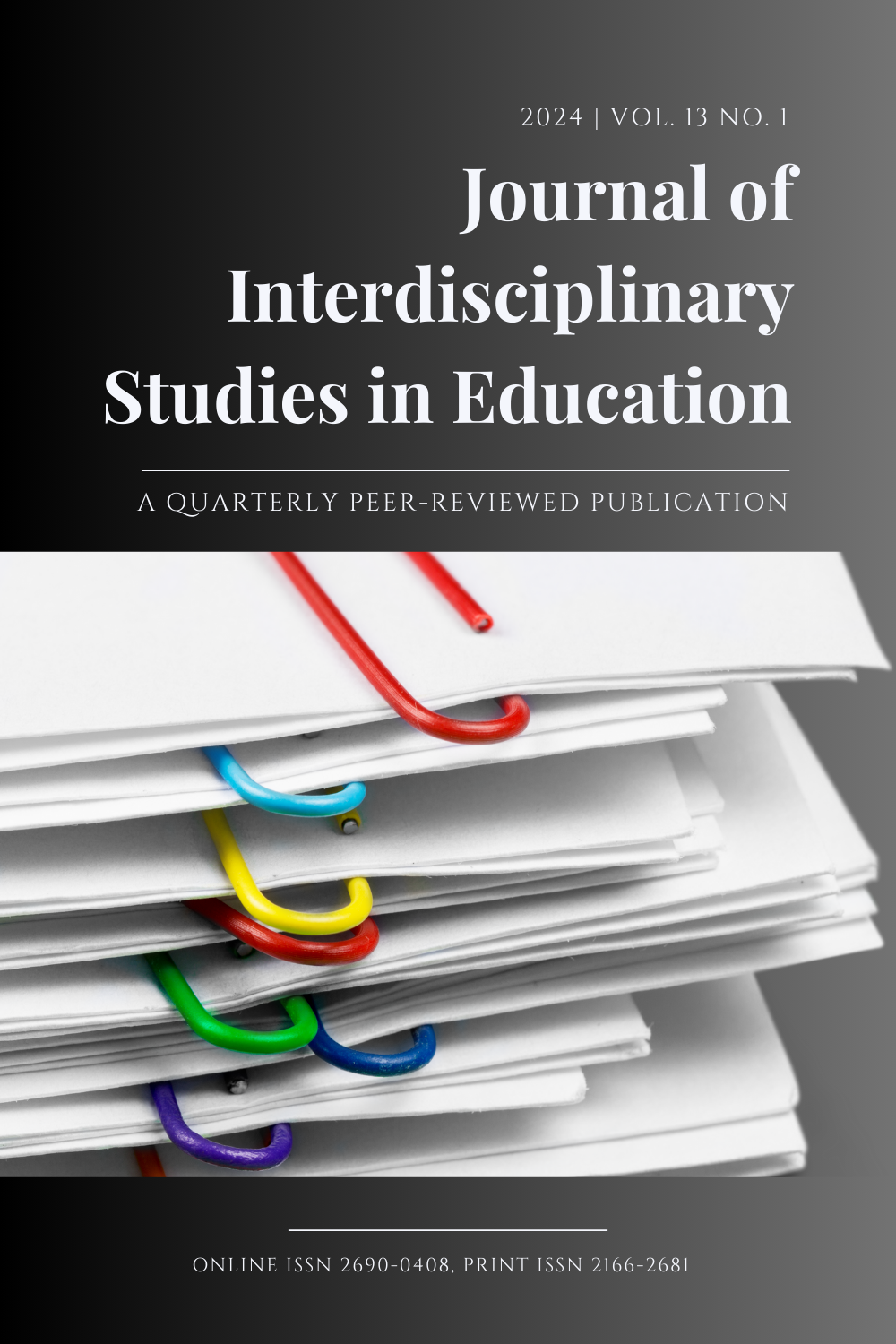From Classroom to Community
Enhancing Undergraduate Research Through an Interdisciplinary Cohort Model
DOI:
https://doi.org/10.32674/jise.v13i1.5857Keywords:
Undergraduate Research, Emerging Scholars, Community Building, Cohort ModelAbstract
While scholarship in education has found that undergraduate involvement in research is beneficial to both students and mentors, those experiences are still incipient in the social sciences when compared to students in science and technology disciplines. The lack of community-based research programs in the social sciences is glaring, as students do not need to be in laboratories to do work. This paper analyzes how an emphasis on community through cohort models impacts undergraduate student experience in research, taking from the Emerging Scholars Program, an interdisciplinary research program at the University of Massachusetts Lowell where yearly cohorts of undergraduate students are matched with faculty research projects and attend meetings, workshops, and presentations together. We find that the cohort-model has effectively created a robust community that fosters positive relationships between students, mentors, and fellow colleagues. These relationships in turn are crucial in the development of professional skills such as public speaking and also build a layer of emotional support that allows students to collaborate on shared solutions and aim higher in their professional goals. The results from this study offer valuable insights into how universities can ensure that students have a successful, meaningful, and impactful research experience beyond the classroom.
Downloads
References
Balster, N., C. Pfund, R. Rediske, and J. Branchaw (2010). Entering research: a course that creates community and structure for beginning undergraduate researchers in the stem disciplines.
CBE—Life Sciences Education 9(2), 108–118.
Bangera, G. and S. E. Brownell (2014). Course-based undergraduate research experiences can make scientific research more inclusive. CBE—Life Sciences Education 13(4), 602–606.
Bauer, K. W. and J. S. Bennett (2003). Alumni perceptions used to assess undergraduate research experience. The Journal of Higher Education 74(2), 210–230.
Craney, C., T. McKay, A. Mazzeo, J. Morris, C. Prigodich, and R. De Groot (2011). Cross-discipline perceptions of the undergraduate research experience. The Journal of Higher Education 82(1), 92–113.
Crowe, J. and A. Boe (2019). Integrating undergraduate research into social science curriculum: Benefits and challenges of two models. Education Sciences 9(4), 296.
Hunter, A.-B., S. L. Laursen, and E. Seymour (2007). Becoming a scientist: The role of undergraduate research in students’ cognitive, personal, and professional development. Science education 91(1), 36–74.
Ishiyama, J. (2002). Does early participation in undergraduate research benefit social science and humanities students? College Student Journal 36(3), 381–387.
Kendricks, K. and A. Arment (2011). Adopting a k-12 family model with undergraduate research to enhance stem persistence and achievement in underrepresented minority students. Journal of College Science Teaching 41(2).
Linn, M. C., E. Palmer, A. Baranger, E. Gerard, and E. Stone (2015). Undergraduate research experiences: Impacts and opportunities. Science 347(6222), 1261757.
Lopatto, D. (2004). Survey of undergraduate research experiences (sure): First findings. Cell biology education 3(4), 270–277.
Maaz, T. M., N. H. Nguyen, A. R. Del Valle Echevarria, M. B. Kantar, Y. Mileyko, and M. G. Muszynski (2022). Design and implementation of a cohort-based undergraduate research experience in the agricultural sciences. Natural Sciences Education 51(1), e20076.
Morales, D. X., S. E. Grineski, and T. W. Collins (2017). Faculty motivation to mentor students through undergraduate research programs: A study of enabling and constraining factors. Research in Higher Education 58(5), 520–544.
Parker, J. (2010). Undergraduate research-methods training in political science: A comparative perspective. PS: Political Science & Politics 43(1), 121–125.
Rand, J. (2016). Researching undergraduate social science research. Teaching in Higher Education 21(7), 773–789.
Russell, S. H., M. P. Hancock, and J. McCullough (2007). Benefits of undergraduate research experiences. Science 316(5824), 548–549.
Tan, K. S., E. B. Elkin, and J. M. Satagopan (2022). A model for an undergraduate research experience program in quantitative sciences. Journal of Statistics and Data Science Education 30(1), 65–74.
Thies, C. G. and R. E. Hogan (2005). The state of undergraduate research methods training in political science. PS: Political Science & Politics 38(2), 293–297.
Wei, C. A. and T. Woodin (2011). Undergraduate research experiences in biology: alternatives to the apprenticeship model. CBE—Life Sciences Education 10(2), 123–131.
Zydney, A. L., J. S. Bennett, A. Shahid, and K. W. Bauer (2002). Impact of undergraduate research experience in engineering. Journal of Engineering Education 91(2), 151–157.
Additional Files
Published
Issue
Section
License
Copyright (c) 2024 Renato Fakhoury, Emma Peterson

This work is licensed under a Creative Commons Attribution-NonCommercial-NoDerivatives 4.0 International License.







